King's College London
Education research mphil/phd, key information.
The School of Education, Communication & Society welcomes applications for the PhD in Education Research. The MPhil/PhD programme offers the chance to undertake a piece of research that is worthy of publication and which makes an original contribution to your field of study. It was ranked 1st in London for research quality the Education Unit of Assessment in the latest Research Excellence Framework (REF).
We are looking for outstanding candidates to join a supportive and dynamic research community.
Students are supervised by staff in one or more of our three Research Centres:
Centre for Research in Education in Science, Technology, Engineering and Mathematics
Centre for Public Policy Research
Centre for Language Discourse and Communication
In addition to its world-leading academic contributions, the School has a proud history of contributing to public policy debates and the concerns of professional communities of practice across multiple sectors, both nationally and internationally. We provide programmes of study that lead doctoral students to the cutting edge of knowledge, and help education professionals critically analyse, research and effectively respond to changes in thinking and policy in their fields.
We recommend that prospective students read through the Research Centre webpages to find their preferred area of research and potential supervisor.

Course Detail
The School provides extensive research training and supervision on a range of themes including: curriculum, pedagogy and assessment; education management; school improvement; higher education; student & teacher identities; informal & workplace learning; inequality and social justice; the nature of professional expertise; the intellectual, emotional, social and spiritual aspects of personal experience and professional development; and the evolving practices and policy contexts of professional work.
There is a particular emphasis on rigorous interdisciplinary and critical perspectives with staff and students working in and across a range of disciplines.
We also run MPhil and PhD programmes in Interdisciplinary Policy Studies and Language, Discourse & Communication. We are home to a range of research projects, funded by research councils (ESRC and AHRC) and major charities (e.g. Wellcome, Leverhulme and Nuffield).
Information is current, but staff members can change .
Head of group/division
Professor Lulu Healy
- How to apply
- Fees or Funding
UK Tuition Fees 2024/25
Full time tuition fees: £6,936 per year
Part time tuition fees: £3,468 per year
International Tuition Fees 2024/25
Full time tuition fees: £26,070 per year
Part time tuition fees: £13,035 per year
UK Tuition Fees 2025/26
Full time tuition fees: £7,500 per year
Part time tuition fees: £3,750 per year
International Tuition Fees 2025/26
Full time tuition fees: £28,000 per year
Part time tuition fees: £14,000 per year
These tuition fees may be subject to additional increases in subsequent years of study, in line with King's terms and conditions.
- Study environment
Base campus

Waterloo Campus
Waterloo campus is home of the Florence Nightingale Faculty of Nursing & Midwifery and facilities for other faculties
Study Environment
The School is located on the Waterloo Campus right in the heart of London, next to London's South Bank Centre which includes the British Film Institute (BFI), Hayward Gallery, and the National Theatre. The Waterloo campus is home to the Franklin Wilkins library, with the Strand campus and the Maughan Library only a short walk away across the river.
The School offers a supportive, lively and outward-looking intellectual environment. There are plenty of opportunities for informal interaction and designated study rooms for doctoral students.
As part of a large multi-faculty institution, students also have the opportunity to build close ties across the College, as well as active cross-institutional links.
Postgraduate Training
Our extensive research training for MPhil/PhD students consists of an initial foundation programme which covers different approaches in the social sciences. It gives you a firm grounding in key social science theories and methodologies and invites students to grapple with experimental and innovative epistemologies.
You will be allocated two supervisors who will work with you throughout your studies. Students will also join one of our three research groups ( Centre for Language, Discourse and Communication ; Centre for Public Policy Research ; Centre for Research in Education in Science, Technology, Engineering and Mathematic s), all of which run a full programme of subject-specialist seminars. Many of these sessions are constructed around students' own research problems, and all of them provide extensive opportunities for students to learn from one another.
Students are also encouraged to participate in the training provided by the College's Centre for Doctoral Studies and the London Interdisciplinary Social Sciences Training Partnership (LISS-DTP) supported by the UK’s Economic and Social Research Council.
Student Destinations
The course provides a good grounding for an academic career, as well as personal enrichment and career enhancement opportunities for those already working in, or interested in moving into, education-related roles within the formal and informal learning sectors, local and central government, research and policy organisations, educational charities and NGOs.
- Entry requirements

Find a supervisor
Search through a list of available supervisors.
For more information regarding our courses please contact us using the details below

Find out more about our King's accommodation
Discover your accommodation options and explore our residences.

Connect with a King’s Advisor
Want to know more about studying at King's? We're here to help.

Learning in London
King's is right in the heart of the capital.
Go to Charlotte.edu
Prospective Students
- About UNC Charlotte
- Campus Life
- Graduate Admissions
Faculty and Staff
- Human Resources
- Auxiliary Services
- Inside UNC Charlotte
- Academic Affairs
Current Students
- Financial Aid
- Student Health
Alumni and Friends
- Alumni Association
- Advancement
- Make a Gift
Ph.D. in Educational Research, Measurement, and Evaluation

The Ph.D. in Educational Research, Measurement, and Evaluation is designed for individuals who are interested in becoming an expert in research methodology, measurement, applied statistics, or program evaluation.
The program targets experienced educators who hold a master’s degree in a related educational field. Career opportunities may be found in a wide variety of educational institutions including higher education, K-12 school districts, for-profit companies, nonprofit agencies, community colleges, think tanks, government organizations, and other institutions concerned with solving problems in education.
Both full-time and part-time students are welcome. Full-time admission is only available in Fall semester, while part-time admission occurs year-round (Fall, Spring, Summer). Full-time students can expect to complete the program within 3-4 years and part-time students within 4-6 years. We offer most courses online and hybrid in the evening to meet student needs. A limited number of courses are offered in summer.
Graduates from our program may find job opportunities in:
- Academia (university or college professor of educational research)
- Institutions and organizations that focus on research and evaluation
- Testing companies
- Offices of assessment, research, and accountability at college/university, school district, or state levels
Program Objectives
Graduates of the ERME program will demonstrate:
- in‐depth knowledge of educational research, measurement, and evaluation and be able to apply knowledge and skills specific to their discipline
- ability to conduct independent research to answer relevant questions their area of specialization and add to the body of knowledge in the field of education
- skills in reflective practice on teaching that addresses diverse learners, research using evidence-based practices, working and collaborating with diverse partners, and using leadership skills
- skills in research consultation with external agencies including needs assessment, communication, and report writing
Program Requirements
- Loading…
Program Director

Dr. Sandra Dika
276 College of Education Building Phone: 704-687-1821 Email: [email protected]
A limited number of research assistantships with tuition support are available annually for full-time students. Contact the program director for details.
- Future Students
- Current Students
- Faculty/Staff

Programs & Degrees
- Programs & Degrees Home
- Master's
- Undergraduate
- Professional Learning
- Student Voices

You are here
Doctoral programs.
The goal of the GSE PhD in Education is to prepare the next generation of leading education researchers. The cornerstone of the doctoral experience at the Stanford Graduate School of Education is the research apprenticeship that all students undertake, typically under the guidance of their academic advisor, but often with other Stanford faculty as well.
In this apprenticeship model, doctoral students are provided with a multi-year funding package that consists of opportunities each quarter to serve as teaching and research assistants for faculty members' courses and research projects. By this means, and in combination with the courses they take as part of their program, students are prepared over an approximately five-year period to excel as university teachers and education researchers.
The doctoral degree in Education at the GSE includes doctoral program requirements as well as a specialization, as listed below, overseen by a faculty committee from one of the GSE's three academic areas.

Doctoral programs by academic area
Curriculum studies and teacher education (cte).
- Elementary Education
- History/Social Science Education
- Learning Sciences and Technology Design
- Literacy, Language, and English Education
- Mathematics Education
- Science, Engineering and Technology Education
- Race, Inequality, and Language in Education
- Teacher Education
Developmental and Psychological Sciences (DAPS)
- Developmental and Psychological Sciences
Social Sciences, Humanities, and Interdisciplinary Policy Studies in Education (SHIPS)
- Anthropology of Education
- Economics of Education
- Education Data Science
- Educational Linguistics
- Educational Policy
- Higher Education
- History of Education
- International Comparative Education
- Organizational Studies
- Philosophy of Education
- Sociology of Education
Cross-area specializations
Learning sciences and technology design (lstd).
LSTD allows doctoral students to study learning sciences and technology design within the context of their primary program of study (DAPS, CTE, or SHIPS).
Race, Inequality, and Language in Education (RILE)
RILE trains students to become national leaders in conducting research on how race, inequality, and language intersect to make both ineffective and effective educational opportunities. RILE allows students to specialize within their program of study (DAPS, CTE, or SHIPS).
Other academic opportunities
- Concentration in Education and Jewish Studies
- PhD Minor in Education
- Stanford Doctoral Training Program in Leadership for System-wide Inclusive Education (LSIE)
- Certificate Program in Partnership Research in Education
- Public Scholarship Collaborative

“I came to Stanford to work with faculty who value learning in informal settings and who are working to understand and design for it.”
Doctoral graduates were employed within four months of graduation
of those employed worked in organizations or roles related to education
For more information about GSE admissions and to see upcoming events and appointments:

To learn more about the Office of Academic Affairs:
Stanford Graduate School of Education
482 Galvez Mall Stanford, CA 94305-3096 Tel: (650) 723-2109
- Contact Admissions
- GSE Leadership
- Site Feedback
- Web Accessibility
- Career Resources
- Faculty Open Positions
- Explore Courses
- Academic Calendar
- Office of the Registrar
- Cubberley Library
- StanfordWho
- StanfordYou
Improving lives through learning

- Stanford Home
- Maps & Directions
- Search Stanford
- Emergency Info
- Terms of Use
- Non-Discrimination
- Accessibility
© Stanford University , Stanford , California 94305 .

Study at Cambridge
About the university, research at cambridge.
- Events and open days
- Fees and finance
- Student blogs and videos
- Why Cambridge
- Qualifications directory
- How to apply
- Fees and funding
- Frequently asked questions
- International students
- Continuing education
- Executive and professional education
- Courses in education
- How the University and Colleges work
- Visiting the University
- Term dates and calendars
- Video and audio
- Find an expert
- Publications
- International Cambridge
- Public engagement
- Giving to Cambridge
- For current students
- For business
- Colleges & departments
- Libraries & facilities
- Museums & collections
- Email & phone search
- / Departments A-Z /
- FoE / Study with Us / Postgraduate Study / Postgraduate Study: Doctoral Programme / PhD in Education Programme
The Faculty of Education
Departments A-Z
- Map & How To Reach Us
- Green Impact and Sustainability
- Visiting Scholars
- Visiting Students
- Courses still available 2020-21
- Undergraduate Study
- Postgraduate Study
- Practitioner Professional Development
- Counselling
- Student Engagement & Feedback
- REF 2021 (Raven required)
- About our research
- Research Areas
- Research Centres
- Research Groups and Centres
- Research Programmes
- Cambridge Journal of Education
- CRiCLE Network
- NRICH mathematics
- Cambridge School Classics Project
- CIAN Network
- Leadership for Learning
- SUPER Network
- Cambridge Primary Review Trust
- Academic Staff
- Emeritus Readers and Professors
- Doctoral Students
- Equality and Diversity
- Media enquiries
- Open Research Seminar calendar
- Conferences
- Recorded seminars and lectures
- Faculty Library - home
- Your Library Guides - Moodle site
- Library Blog - FYI
- Opening Hours
- COVID-19 guidance
- Remote working guide
- AV Support Service
- Booker - Book a room
- Google Apps@Cambridge
- External Bookings
- educ NET
PhD in Education Programme
- Faculty of Education
Study with Us
- Postgraduate Study: Doctoral Programme
- PhD Programme
- EdD Programme
- The Doctoral Experience
- The Cambridge Experience
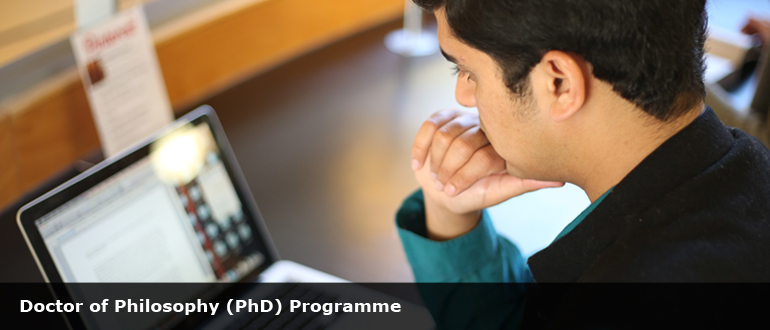
Postgraduate Open Day
Each year the University holds a Postgraduate Open Day where potential applicants can ask staff their questions, find out more about the application process, and explore Cambridge virtually.
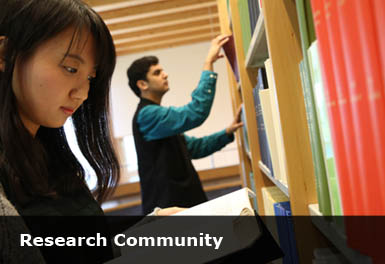
Research Community
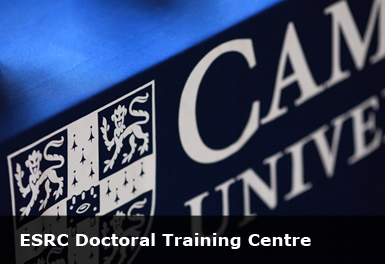
ESRC Doctoral Training Centre

PhD Programme Structure

The PhD Dissertation
Doctoral programme, centres & networks, connect with us, our address.
© 2024 University of Cambridge
- University A-Z
- Contact the University
- Accessibility
- Freedom of information
- Terms and conditions
- Undergraduate
- Postgraduate
- Spotlight on...
- About research at Cambridge

Education MPhil/PhD
Distance learning programme
This is the programme information for 2025 entry
If you require details of the previous year's programme, Education MPhil/PhD (2024), click here
IOE, UCL’s Faculty of Education and Society offers world-leading doctoral programmes in education and related social science. Our Education MPhil/PhD distance learning students undertake their research project, working closely with their supervisor(s) online (e.g. using Teams/Zoom and email) to develop each stage of their research, whilst engaging in a tailored programme of online research training courses and activities available from the UCL Doctoral Skills Development Programme, IOE faculty’s Research Training Programme, the multi-institutional Bloomsbury Postgraduate Skills Network, and from other sources.
UK tuition fees (2025/26)
Overseas tuition fees (2025/26), programme starts, applications accepted.
- Entry requirements
The normal minimum requirement is a Master’s degree from a UK university in a subject appropriate to the programme to be followed, or a qualification of equivalent standard appropriate to the programme to be followed awarded by a university (or educational institution of university rank) outside the UK. The majority of our successful applicants hold a Merit at Master’s level, and may have additional relevant experience. Students without a Master’s degree who have completed the UCL PGDip in Social Science Research Methods, obtaining a grade B or above in any two or more modules, may also be considered for admission to this programme.
The English language level for this programme is: Level 4
UCL Pre-Master's and Pre-sessional English courses are for international students who are aiming to study for a postgraduate degree at UCL. The courses will develop your academic English and academic skills required to succeed at postgraduate level.
Further information can be found on our English language requirements page.
Equivalent qualifications
Country-specific information, including details of when UCL representatives are visiting your part of the world, can be obtained from the International Students website .
International applicants can find out the equivalent qualification for their country by selecting from the list below. Please note that the equivalency will correspond to the broad UK degree classification stated on this page (e.g. upper second-class). Where a specific overall percentage is required in the UK qualification, the international equivalency will be higher than that stated below. Please contact Graduate Admissions should you require further advice.
About this degree
IOE has specialised, research-active staff who are able to supervise students in education and related social sciences, including leadership, management, and teaching and learning in all phases of education, from early years through schooling and post-compulsory education to professional and lifelong learning. Other areas include health, the life course and economics.
Who this course is for
The MPhil/PhD is for applicants with a strong interest in an aspect of educational and social research, which may be understood broadly across the life course, in relation to other subject areas and wider social, economic, political and cultural changes. You may have a background in education or a cognate area of study. It is suitable for both recent graduates and those progressed in a career.
What this course will give you
IOE is a world-leading centre for research in education and related social science. We host the UK's largest doctoral cohort in these areas. In the QS World University Rankings by Subject (2024), the Institute was ranked first for education for the 11th year running, ahead of Harvard, Stanford, Oxford and Cambridge. In the UK's recent Research Excellence Framework (2021), we were ranked first for research strength and research power in Education, according to the Elsevier REF 2021 Results Analysis Tool. We attract extensive research funding each year and host many prestigious research centres and projects.
There are no residency requirements and the programme has been designed to engage students in distance learning so it is not necessary to attend.
Students undertake their research project, working closely with their supervisor(s) online (e.g., using Teams/Zoom and email) to develop each stage of their research, whilst engaging in online research training courses modules and activities.
The viva examination takes place in-person at UCL or online. Students are welcome to visit and use campus facilities including the library, attend seminars etc.
The foundation of your career
Students gain experience of planning and implementing research methodologies, academic writing and presentation, management of their own research projects, and engagement with a wide range of researchers, practitioners, policymakers and other groups relevant to their chosen topic.
Employability
IOE doctoral graduates progress to a diverse range of careers in research, policy, management and practice, within education, cultural sectors and related areas of social science.
IOE is a leading centre for education and social science research. Students will have the opportunity to network with other doctoral students from around the world, as well as with world-leading academics within their field of study. The institute hosts several online seminar series as well as both national and international conferences. In addition, students are encouraged to take part in conferences elsewhere, expanding networking opportunities.
Teaching and learning
Distance learning students engage in independent learning supported through: (i) individualized online supervision (e.g., via Teams/Zoom and email) and (ii) peer group (cohort) learning through asynchronous and synchronous learning activities following a robust Online Research Training Programme (Online RTP). However, students are welcome to visit and use campus facilities to engage in in-person research training, access the library, attend seminars etc.
Education MPhil/PhD engages distance learning students in a robust Online Research Training Programme (Online RTP) to complement their individualised online supervision.
The Online RTP comprises of six `core' modules with asynchronous and synchronous learning activities introducing social science research in education. Modules build students' critical perspective in: approaches to educational research, research and the theoretical field, research methods, qualitative and quantitative analytic procedures and academic writing and presentation. Learning activities engage students in developing their doctoral research through independent study, peer group study and module tutor feedback.
Students with prior learning have flexibility in opting to engage in advanced online courses from the UCL Doctoral Skills Development Programme, IOE Research Training Programme, Bloomsbury Postgraduate Skills Network and other sources, as agreed with supervisors.
Full-time students typically study 2 modules per term over one year while part-time students study 1 module per term over two years. Modules run for 4-9 weeks and are awarded 6-10 `training points'.
Students also undertake two `core skills' courses to: (i) introduce UCL and IOE academic regulations, prepare for upgrade and ethics application and, (ii) enhance students' use of digital information and resources.
Assessment is undertaken through completion of a thesis and viva examination. The maximum word length for a PhD degree thesis is 100,000 words. This includes footnotes, tables and figures but excludes bibliography, appendices and supporting data. In some instances, supervisors may wish to recommend a shorter length. Students should therefore consult with their supervisors on the length of theses in their subject area or topic, including the minimum length. The viva examination takes place in-person at UCL or online.
Education MPhil/PhD students engage in self-directed learning. Duration of full-time study is 3 years and part-time study is 5 years. Typically, full-time students engage in their doctoral studies for at least 35 hours a week, whilst part-time students engage in at least 15 hours a week.
Research areas and structure
Applicants to the IOE Education MPhil/PhD programme must apply to one of the six departments within the IOE: Culture, Communication and Media; Curriculum, Pedagogy and Assessment; Education, Practice and Society; Learning and Leadership; Psychology and Human Development; or the UCL Social Research Institute.
Applicants should look at the departmental websites to find out more information about the work of each department, and to identify one or more potential supervisors for their work. Even though applicants apply directly to the MPhil/PhD programmes in the department of their principal supervisor, the programme they follow once enrolled will be identical.
Research environment
You will have the opportunity to access to the wider UCL community. The Institute’s programme has been designed to provide comprehensive and broadly based research training and to meet the requirements of the Economic and Social Research Council (ESRC), the Arts and Humanities Research Council (AHRC) and the UK Researcher Development Framework.
As a research student at IOE, UCL’s Faculty of Education and Society you have the opportunity to participant in online seminar groups when engaging in distance learning as well as in-person seminar groups when visiting campus, along with seminars organised by research centres or according to interest groups. This promotes collegiality and enriches learning.
The length of registration for the research degree programmes is 3 years for full-time.
You are required to register initially for the MPhil degree with the expectation of transfer to PhD after successful completion of an upgrade viva 9-18 months after initial registration.
Students undertake their research project, working closely with their supervisor(s) online (e.g., using Teams/Zoom and email) to develop each stage of their research, whilst engaging in online research training courses and activities.
IOE Centre for Doctoral Education provides an extensive Research Training Programme. Courses are available from the UCL Doctoral Skills Development Programme, IOE faculty’s Research Training Programme, the multi-institutional Bloomsbury Postgraduate Skills Network, and from other sources. The training offers a wide range of introductory, advanced methods, advanced theoretical, and generic non-credit bearing academic skills courses, as well as student led workshops and reading groups which you can attend.
A mandatory core course is provided online and in-person that aims to meet the needs of early-stage doctoral students. In addition, distance learning students are required to take six tailored online research training core modules (Approaches to Educational Research; Research and the Theoretical Field; Research Methods; Qualitative Data Analysis; Quantitative Data Analysis; Writing and Presenting Educational Research) in their first year of full-time study or first two years of part-time study, and are then able to choose from a selection of advanced online courses.
Full-time MPhil/PhD students are required to fulfil minimum 20 ‘points’ of training activity in their first year, and are encouraged to fulfil the same in their subsequent years of study. Each point is worth approximately a half-day of face-to-face training, or an online equivalent.
Other activities such as attending and presenting at conferences also count towards research training. Students may undertake additional training beyond these minima, as relevant to their research and/or as agreed with their supervisors.
You are expected to upgrade from MPhil to PhD status towards the end of your first year of study if full-time. Students whose performance is satisfactory will transfer from MPhil to PhD status.
Processes aimed at assisting you during your course of study include the Research Student Log (an online project management tool), and periodic reviews of students’ progress.
Upon successful completion of your approved period of registration you may, if necessary, register as a completing research status (CRS) student while you finish writing your thesis.
The length of registration for the research degree programmes is 5 years for part-time.
Students undertake their research project, working closely with their supervisor(s) online (e.g., using Teams/Zoom and email) to develop each stage of their research, whilst engaging in online research training courses and activities.
IOE Centre for Doctoral Education provides an extensive Research Training Programme. Courses are available from the UCL Doctoral Skills Development Programme, IOE faculty's Research Training Programme, the multi-institutional Bloomsbury Postgraduate Skills Network, and from other sources.
The training offers a wide range of introductory, advanced methods, advanced theoretical, and generic non-credit bearing academic skills courses, as well as student led workshops and reading groups which you can attend.
Part-time students are required to fulfil minimum 12 ‘points’ of training activity in each year of study. Each point is worth approximately a half-day of face-to-face training, or an online equivalent.
You are expected to upgrade from MPhil to PhD status at around 18 months if part-time. Students whose performance is satisfactory will transfer from MPhil to PhD status.
Accessibility
Details of the accessibility of UCL buildings can be obtained from AccessAble . Further information can also be obtained from the UCL Student Support and Wellbeing Services team .
Fees and funding
Fees for this course.
The tuition fees shown are for the year indicated above. Fees for subsequent years may increase or otherwise vary. Where the programme is offered on a flexible/modular basis, fees are charged pro-rata to the appropriate full-time Master's fee taken in an academic session. Further information on fee status, fee increases and the fee schedule can be viewed on the UCL Students website: ucl.ac.uk/students/fees .
Additional costs
Students are responsible for covering any travel, accommodation, and other expenses involved in conducting research for their thesis and should account for these costs when planning their finances.
UCL’s main teaching locations are in zones 1 (Bloomsbury) and zones 2/3 (UCL East). The cost of a monthly 18+ Oyster travel card for zones 1-2 is £114.50. This price was published by TfL in 2024. For more information on additional costs for prospective students and the cost of living in London, please view our estimated cost of essential expenditure at UCL's cost of living guide .

Funding your studies
For a comprehensive list of the funding opportunities available at UCL, including funding relevant to your nationality, please visit the Scholarships and Funding website .
After choosing a programme to apply for, you should develop a research proposal and identify a potential supervisor. For more information, visit our website to find a supervisor and get in touch with departmental graduate tutors.
Please note that you may submit applications for a maximum of two graduate programmes (or one application for the Law LLM) in any application cycle.
Choose your programme
Please read the Application Guidance before proceeding with your application.
Year of entry: 2025-2026
Year of entry: 2024-2025, got questions get in touch.

UCL Institute of Education
UCL is regulated by the Office for Students .
Prospective Students Graduate
- Graduate degrees
- Taught degrees
- Taught Degrees
- Applying for Graduate Taught Study at UCL
- Research degrees
- Research Degrees
- Funded Research Opportunities
- Doctoral School
- Funded Doctoral Training Programmes
- Applying for Graduate Research Study at UCL
- Teacher training
- Teacher Training
- Early Years PGCE courses
- Primary PGCE courses
- Secondary PGCE courses
- Further Education PGCE programme
- How to apply
- The IOE approach
- Teacher training in the heart of London
- Why choose UCL?
- Entrepreneurship
- Inspiring facilities and resources
- Careers and employability
- Your global alumni community
- Your wellbeing
- Postgraduate Students' Association
- Your life in London
- Accommodation
- Funding your Master's
Study Postgraduate
Mphil/phd in education (2025 entry).

Course code
6 October 2025
4 years full-time; 7 years part-time
Qualification
Education Studies
University of Warwick
Download our prospectus Link opens in a new window
Find out more about our MPhil/PhD in Education.
Education Studies at Warwick includes three overarching strands: Learning, Society and Cultures. These strands group academics with a shared interest in educational research and scholarship, providing a space for meaningful and multi-disciplinary collaborations across the Department and beyond. The Department’s ethos is that educational research and scholarship exist to find solutions to questions of ‘what works’ in terms of policy and practice, but also to problematise existing policy and practice by posing new questions about the purposes and the future of education, in the UK and globally. The University of Warwick's Doctorate in Education welcomes world-class applicants with a commitment to educational research and challenge. The Department of Education Studies was ranked 6th in the UK for Education ( The Times/Sunday Times Good University Guide 2022 ).
Course overview
The PhD is designed as a programme combining advanced research methods training and individual, supervised research, leading to an 80,000 word thesis. The thesis is expected to be a substantial original contribution to knowledge and, in principle, to have the potential to be developed into peer-reviewed publication.
Teaching and learning
The PhD programme has an Advanced Research Methods training element that is compulsory, and all students complete an Upgrade examination (a written portfolio and oral examination) in order to progress from MPhil to PhD. The research methods training takes place via online mode on Saturday mornings spread out over the first year. Students work with their supervisors on their independent projects throughout the course. We have research student work rooms within the department with desktop computers available.
Specific departmental guidance is available on preparing applications to the Department of Education Studies and on Preparing a Research Proposal .
What does it mean to study and research Education?
Education provides us with an essential foundation for a fulfilling life in a thriving and equitable society – it underpins how we act and see the world and is the engine of social and cultural change and reproduction.
Education gives the basis for innovation in thought, culture and technology; it nurtures a sense of citizenship and social participation; it underpins our political and economic robustness; and is the foundation of the knowledge and skills that society shares.
Education is fundamentally about human development, knowledge and social justice. Education is something that everyone experiences: it is life-long and society wide; it is local as well as global; it takes place in the home, in prisons, in refugee centres, in places of worship, in the workplace, on the sports field, in the theatre, in the pub as well as in the classroom.
Education, like Politics, is inherently interdisciplinary – it is an applied field of study which draws on a range of disciplines including: sociology, psychology, history and philosophy. It is necessarily pluralist and eclectic, drawing upon a range of theoretical, conceptual and methodological perspectives.
Therefore, in studying and researching Education we work to understand the fundamental questions about why we educate, how we educate, who we educate and what purpose education serves.
Find out more about us on our website.
General entry requirements
Minimum requirements.
2:1 undergraduate degree (or equivalent) in Education, any relevant Social Sciences or Humanities discipline, or another relevant discipline if justified.
A Master’s degree in Education, any relevant Social Sciences or Humanities discipline, or another relevant discipline if justified.
English language requirements
You can find out more about our English language requirements Link opens in a new window . This course requires the following:
- With a minimum of 6.5 in the Writing component.
International qualifications
We welcome applications from students with other internationally recognised qualifications.
For more information, please visit the international entry requirements page Link opens in a new window .
Additional requirements
There are no additional entry requirements for this course.
Our research
Our main research themes are:
- Special educational needs and disability
- Early years’ education
- Philosophy of mind and thought
- Educational leadership and development
- Drama and theatre education
- Creative and arts-based learning
- Sociology of arts and religion
- Modern Islamic pedagogies
- Education inequalities and social justice
- Sociologies of childhood and fatherhood
- Education policy
- Feminist and gender pedagogy
- Higher education
- International development
Full details of our research interests are listed on the Education Studies webpages Link opens in a new window .
You can also read our general University research proposal guidance.
Find a supervisor
It is advisable to locate a potential supervisor using the link below and to discuss with them the area you'd like to research.
We have over 20 full-time academic staff members with many research strengths who could be your supervisors. Explore our Staff Research Directory where you will be able to filter by research interests. Co-supervision with other departments may be possible.
You can also see our general University guidance about finding a supervisor. Link opens in a new window
Research proposals
For admission to the Department of Education Studies research degree programme, the proposal should be approximately 2,000 words (excluding the references list), and no longer than this.
Note that there may well be changes and developments to the proposal if you gain entry to the department and begin your study. You will not be held rigidly to the proposal – however, we want to see that you are able to conceive of a doctoral research project as part of the application review process.
For more details on what we look for in a research proposal please see our webpages .
Tuition fees
Tuition fees are payable for each year of your course at the start of the academic year, or at the start of your course, if later. Academic fees cover the cost of tuition, examinations and registration and some student amenities.
Find your research course fees
Fee Status Guidance
We carry out an initial fee status assessment based on the information you provide in your application. Students will be classified as Home or Overseas fee status. Your fee status determines tuition fees, and what financial support and scholarships may be available. If you receive an offer, your fee status will be clearly stated alongside the tuition fee information.
Do you need your fee classification to be reviewed?
If you believe that your fee status has been classified incorrectly, you can complete a fee status assessment questionnaire. Please follow the instructions in your offer information and provide the documents needed to reassess your status.
Find out more about how universities assess fee status
Additional course costs
As well as tuition fees and living expenses, some courses may require you to cover the cost of field trips or costs associated with travel abroad.
For departmental specific costs, please see the Modules tab on the course web page for the list of core and optional core modules with hyperlinks to our Module Catalogue (please visit the Department’s website if the Module Catalogue hyperlinks are not provided).
Associated costs can be found on the Study tab for each module listed in the Module Catalogue (please note most of the module content applies to 2022/23 year of study). Information about module department specific costs should be considered in conjunction with the more general costs below:
- Core text books
- Printer credits
- Dissertation binding
- Robe hire for your degree ceremony
Scholarships and bursaries
Scholarships and financial support.
Find out about the different funding routes available, including; postgraduate loans, scholarships, fee awards and academic department bursaries.
Living costs
Find out more about the cost of living as a postgraduate student at the University of Warwick.
Our Postgraduate Taught courses
- Childhood in Society (MA)
- Drama and Theatre Education (MA)
- Drama Education and English Language Teaching (MA)
- Education (MA)
- Educational Innovation (MA)
- Educational Leadership and Management (MA)
- Foundation Research Methods in Education (PGA)
- Global Education and International Development (MA)
- Islamic Education (PGA)
- Islamic Education: Theory and Practice (MA)
- Leading Educational Change and Improvement (PGA)
- Psychology and Education (MA)
Our Postgraduate Research courses
- Education (MPhil/PhD)
How to apply
The application process for courses that start in September and October 2025 will open on 2 October 2024.
For research courses that start in September and October 2025 the application deadline for students who require a visa to study in the UK is 2 August 2025. This should allow sufficient time to complete the admissions process and to obtain a visa to study in the UK.
How to apply for a postgraduate research course

After you’ve applied
Find out how we process your application.

Applicant Portal
Track your application and update your details.

Admissions statement
See Warwick’s postgraduate admissions policy.

Join a live chat
Ask questions and engage with Warwick.
Explore ways to connect with us
We understand how important it is to visit and explore your future university before you apply. That's why we have put together a range of online and in-person options to help you discover more about your course, visit campus, and get a sense of postgraduate life at Warwick. Our events offer includes:
- Warwick hosted events
- Postgraduate Fairs
- Talk and Tours
- Department events
Why Warwick
Discover why Warwick is one of the best universities in the UK and renowned globally.

8th in the UK
in the Guardian University Guide 2025

6th Most Targeted University
by the UK's top 100 graduate employers (The Graduate Market in 2024, High Fliers Research Ltd)

69th in the World
out of 1,500 institutions across 104 locations (QS World University Rankings 2025)

5th best student city in the UK
Coventry is ranked as the 5th Best Student City in the UK, and 40th in the world (Best Student Cities, QS World University Guide 2023)

Gold standard teaching
Gold, the highest possible rating across all three categories (student experience, student outcomes, and overall) (Teaching Excellence Framework 2023)

92% of our research
was assessed as 'world-leading' or 'internationally excellent' (Research Excellence Framework 2021)
Page updates
We may have revised the information on this page since publication. See the edits we have made and content history .
About the information on this page
This information is applicable for 2025 entry. Given the interval between the publication of courses and enrolment, some of the information may change. It is important to check our website before you apply. Please read our terms and conditions to find out more.
Our use of cookies
We use necessary cookies to make our site work. We'd also like to set optional cookies to help us measure web traffic and report on campaigns.
We won't set optional cookies unless you enable them.
Cookie settings
Study for a PhD in Educational Research
We offer a portfolio of research-led continuing professional development opportunities at doctoral level which are closely associated with our centres.
Structured PhDs
Phd in higher education: research, evaluation and enhancement.
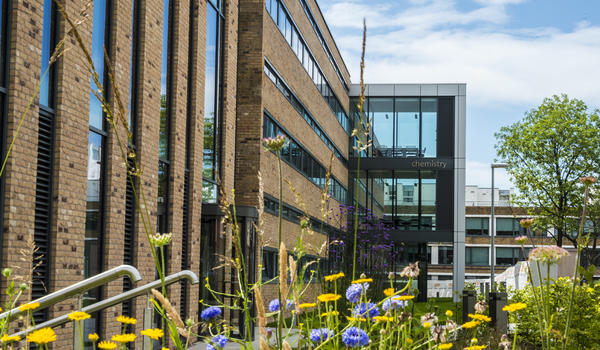
PhD in Education and Social Justice

PhD in E-Research and Technology Enhanced Learning
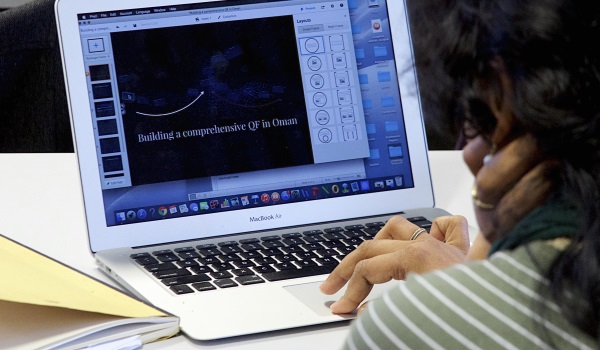
Traditional route PhD - independent study
We offer supervision in a range of research areas by world-renowned specialists in a range of topics within our areas of specialism.
Frequently asked questions
Frequently asked questions accordion accordion, can i study part-time.
Most of our PhD programmes are studied part-time. The exception is the Traditional route PhD which can be undertaken as full-time or part-time study.
Do I have to visit the campus to study for a PhD?
This depends on which programme of study you choose. For the PhD in E-Research and Technology Enhanced Learning , you must attend some campus-based residentials.
Two of our PhD programmes, the PhD in Higher Education: Research, Evaluation and Enhancement and the PhD in Education and Social Justice, are studied entirely online. Supervision for the Traditional route PhD - independent study can be conducted online or on campus. As Lancaster University students, all of our learners are welcome to visit the campus at any time.
Do I have to write a research proposal?
If you decide to apply for a Traditional route PhD then you will have to provide a 1500-2000 word research proposal. For the other PhD programmes, you will need to provide a personal statement.
How much are the fees?
The fees for our doctoral programmes are given with the "Fees and funding" section of each of the programmes.
Who should I contact for further information about a particular PhD programme?
Contact details for the different PhD programmes can be found within the web pages describing that programme.
Find out what our graduates say about studying on our PhD programmes
All PhD theses awarded by the Department of Educational Research are available from Lancaster University's library with recent theses available in electronic form.
A full list of theses is available via OneSearch and this Library web page gives more information about Theses and Dissertations .
Meet some of the people who have successfully completed their PhDs in our Department.

IMAGES
VIDEO
COMMENTS
The Harvard Ph.D. in Education trains cutting-edge researchers who work across disciplines to generate knowledge and translate discoveries into transformative policy and practice. …
We provide programmes of study that lead doctoral students to the cutting edge of knowledge, and help education professionals critically analyse, research and effectively respond to changes in thinking and policy in their fields.
The Ph.D. in Educational Research, Measurement, and Evaluation is designed for individuals who are interested in becoming an expert in research methodology, measurement, applied …
Doctoral Programs. The goal of the GSE PhD in Education is to prepare the next generation of leading education researchers. The cornerstone of the doctoral experience at the Stanford Graduate School of Education is the …
We currently have over 300 full- and part-time PhD students in the Faculty of Education from more than 65 countries. They make an important contribution to the vitality of the Faculty's research culture and to its outstanding reputation …
The MPhil/PhD is for applicants with a strong interest in an aspect of educational and social research, which may be understood broadly across the life course, in relation to other subject areas and wider social, economic, political and cultural …
The University of Warwick's Doctorate in Education welcomes world-class applicants with a commitment to educational research and challenge. The Department of Education Studies …
Study for a PhD in Educational Research. We offer a portfolio of research-led continuing professional development opportunities at doctoral level which are closely associated with our centres.